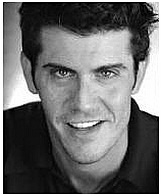I was just rereading Abraham Joshua Heschel’s book The Prophets:
While ancient societies most highly valued wisdom, wealth, and power, to the prophets “such infatuation was ludicrous and idolatrous.” For them, kindness, justice, and righteousness were the highest ideals and actions. For the prophets, justice was the supreme manifestation of God. This was not simply because it was right for the individual, both the dispenser and the recipient, but because of the link between justice and world history: justice will decide social survival and success. “For accomplishing His grand design, God needs the help of man.”
Justice, then, is not important as an abstraction or value but for practical effects on people. Thus the prophets were preoccupied not so much with the ideal of justice but with the practical applications of injustice and oppression. Most of their activity was to interfere in situations which, while not concerning them personally, they regarded as instances of injustice. “The prophet is a person who is not tolerant of wrongs done to others, who resents other people’s injuries.”
As I meditated upon kindness, justice, and righteousness, I checked my email, a frequent source of inspiration.
There was a message from the American Jewish University explicating upon these themes:
| |||||||||||||||||||||
You know this will be good because this is the same crowd that brought us “Dancing With The Rabbis.”
What Jewish institutions desperately need are more dancing classes with sexy instructors in styles of movement that lead to “heart-aches, failed affairs, and early morning walks home along the Seine.”
On April 3, under the auspices of the American Jewish University, in its Gindi Auditorium, five Los Angeles rabbis competed with one another in an evening titled “Dancing With the Rabbis.” As reported in this newspaper, the sellout crowd loved the evening.
May I respectfully suggest — and I do mean respectfully, as I know that good intentions prompted the evening — that this be the “once in a lifetime” event that some who attended called it. It should not be repeated.




